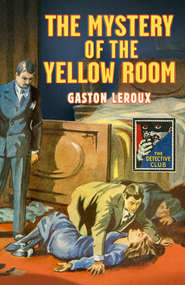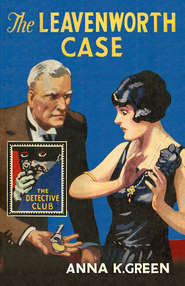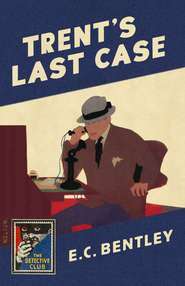По всем вопросам обращайтесь на: info@litportal.ru
(©) 2003-2025.
✖
The Pit-Prop Syndicate
Автор
Год написания книги
2019
Настройки чтения
Размер шрифта
Высота строк
Поля
‘How long did you say those lorries were away unloading?’
‘About four hours.’
‘That would have given them time to unload in Bordeaux?’
‘Yes; an hour and a half in, the same out, and an hour in the city. Yes, that part of it is evidently right enough.’
Again silence reigned, and again Merriman broke it with a question.
‘You have no theory yourself?’
‘Absolutely none.’
‘Do you think that driver mightn’t have some private game of his own on—be somehow doing the syndicate?’
‘What about your own argument?’ answered Hilliard. ‘Is it likely Miss Coburn would join the driver in anything shady? Remember, your impression was that she knew.’
Merriman nodded.
‘That’s right,’ he agreed, continuing slowly: ‘Supposing for a moment it was smuggling. How would that help you to explain this affair?’
‘It wouldn’t. I can get no light anywhere.’
The two men smoked silently, each busy with his thoughts. A certain aspect of the matter which had always lain subconsciously in Merriman’s mind was gradually taking concrete form. It had not assumed much importance when the two friends were first discussing their trip, but now that they were actually at grips with the affair it was becoming more obtrusive, and Merriman felt it must be faced. He therefore spoke again.
‘You know, old man, there’s one thing I’m not quite clear about. This affair that you’ve discovered is extraordinarily interesting and all that, but I’m hanged if I can see what business of ours it is.’
Hilliard nodded swiftly.
‘I know,’ he answered quickly. ‘The same thing has been bothering me. I felt really mean yesterday when that girl came by, as if I were spying on her, you know. I wouldn’t care to do it again. But I want to go on to this place and see into the thing farther, and so do you.’
‘I don’t know that I do specially.’
‘We both do,’ Hilliard reiterated firmly, ‘and we’re both justified. See here. Take my case first. I’m in the Customs Department, and it is part of my job to investigate suspicious import trades. Am I not justified in trying to find out if smuggling is going on? Of course I am. Besides, Merriman, I can’t pretend not to know that if I brought such a thing to light I should be a made man. Mind you, we’re not out to do these people any harm, only to make sure they’re not harming us. Isn’t that sound?’
‘That may be all right for you, but I can’t see that the affair is any business of mine.’
‘I think it is.’ Hilliard spoke very quietly. ‘I think it’s your business and mine—the business of any decent man. There’s a chance that Miss Coburn may be in danger. We should make sure.’
Merriman sat up sharply.
‘In Heaven’s name, what do you men, Hilliard?’ he cried fiercely. ‘What possible danger could she be in?’
‘Well, suppose there is something wrong—only suppose, I say,’ as the other shook his head impatiently. ‘If there is, it’ll be on a big scale, and therefore the men who run it won’t be over squeamish. Again, if there’s anything, Miss Coburn knows about it. Oh, yes, she does,’ he repeated as Merriman would have dissented, ‘there is your own evidence. But if she knows about some large, shady undertaking, she undoubtedly may be in both difficulty and danger. At all events, as long as the chance exists it’s up to us to make sure.’
Merriman rose to his feet and began to pace up and down, his head bent and a frown on his face. Hilliard took no notice of him and presently he came back and sat down again.
‘You may be right,’ he said. ‘I’ll go with you to find that out, and that only. But I’ll not do any spying.’
Hilliard was satisfied with his diplomacy. ‘I quite see your point,’ he said smoothly, ‘and I confess I think you are right. We’ll go and take a look round, and if we find things are all right we’ll come away again, and there’s no harm done. That agreed?’
Merriman nodded.
‘What’s the programme then?’ he asked.
‘I think tomorrow we should take the boat round to the Lesque. It’s a good long run and we mustn’t be late getting away. Would five be too early for you?’
‘Five? No, I don’t mind if we start now.’
‘The tide begins to ebb at four. By five we shall get the best of its run. We should be out of the river by nine, and in the Lesque by four in the afternoon. Though that mill is only seventeen miles from here as the crow flies, it’s a frightful long way round by sea, most of 130 miles, I should say.’ Hilliard looked at his watch. ‘Eleven o’clock. Well, what about going back to the Swallow and turning in?’
They left the Jardin, and, sauntering slowly through the well-lighted streets, reached the launch and went on board.
CHAPTER IV (#ulink_9051d2e0-b5e8-58db-bc40-7d94d18ba343)
A COMMERCIAL PROPOSITION
MERRIMAN was aroused next morning by the feeling rather than the sound of stealthy movements going on not far away. He had not speedily slept after turning in. The novelty of his position, as well as the cramped and somewhat knobby bed made by the locker, and the smell of oils, had made him restless. But most of all the conversation he had had with Hilliard had banished sleep, and he had lain thinking over the adventure to which they had committed themselves, and listening to the little murmurings and gurglings of the water running past the piles and lapping on the woodwork beside his head. The launch kept slightly on the move, swinging a little backwards and forwards in the current as it alternately tightened and slackened its mooring ropes, and occasionally quivering gently as it touched the wharf. Three separate times Merriman had heard the hour chimed by the city clocks, and then at last a delightful drowsiness had crept over him, and consciousness had gradually slipped away. But immediately this shuffling had begun, and with a feeling of injury he roused himself to learn the cause. Opening his eyes he found the cabin was full of light from the dancing reflections of sunlit waves on the ceiling, and that Hilliard, dressing on the opposite locker, was the author of the sounds which had disturbed him.
‘Good!’ cried the latter cheerily. ‘You’re awake? Quarter to five and a fine day.’
‘Couldn’t be,’ Merriman returned, stretching himself luxuriously. ‘I heard it strike two not ten seconds ago.’
Hilliard laughed.
‘Well, it’s time we were under way anyhow,’ he declared. ‘Tide’s running out this hour. We’ll get a fine lift down to the sea.’
Merriman got up and peeped out of the porthole above his locker.
‘I suppose you tub over the side?’ he inquired. ‘Lord, what sunlight!’
‘Rather. But I vote we wait an hour or so until we’re clear of the town. I fancy the water will be more inviting lower down. We could stop and have a swim, and then we should be ready for breakfast.’
‘Right-o. You get way on her, or whatever you do, and I shall have a shot at clearing up some of the mess you keep here.’
Hilliard left the cabin, and presently a racketing noise and vibration announced that the engines had been started. This presently subsided into a not unpleasing hum, after which a hail came from forward.
‘Lend a hand to cast off, like a stout fellow.’
Merriman hurriedly completed his dressing and went on deck, stopping in spite of himself to look around before attending to the ropes. The sun was low down over the opposite bank, and transformed the whole river down to the railway bridge into a sheet of blinding light. Only the southern end of the great structure was visible stretching out of the radiance, as well as the houses on the western bank, but these showed out with incredible sharpness in high lights and dark shadows. From where they were lying they could not see the great curve of the quays, and the town in spite of the brilliancy of the atmosphere looked drab and unattractive.
‘Going to be hot,’ Hilliard remarked. ‘The bow first, if you don’t mind.’
He started the screw, and kept the launch alongside the wharf while Merriman cast off first the bow and then the stern ropes. Then, steering out towards the middle of the river, he swung round and they began to slip rapidly down-stream with the current.
After passing beneath the huge mass of the railway bridge they got a better view of the city, its rather unimposing buildings clustering on the great curve of the river to the left, and with the fine stone bridge over which they had driven on the previous evening stretching across from bank to bank in front of them. Slipping through one of its seventeen arches, they passed the long lines of quays with their attendant shipping, until gradually the houses got thinner and they reached the country beyond.
About a dozen miles below the town Hilliard shut off the engines, and when the launch had come to rest on the swift current they had a glorious dip—in turn. Then the odour of hot ham mingled in the cabin with those of paraffin and burnt petrol, and they had an even more glorious breakfast. Finally the engines were restarted, and they pressed steadily down the ever-widening estuary.










